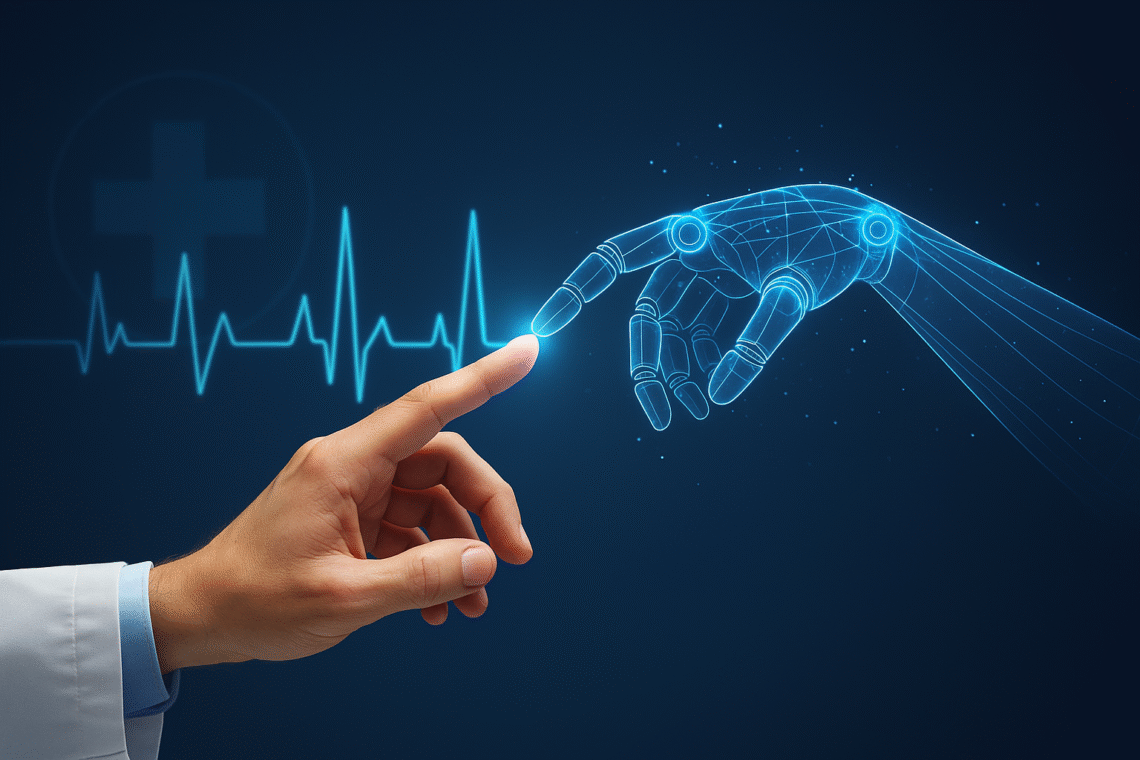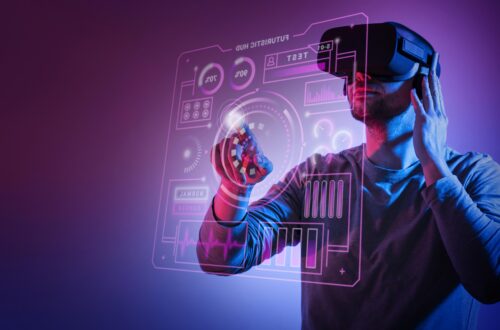AI and the Next Chapter in Healthcare
Healthcare is undergoing a transformation unlike any in its history. At the heart of this shift lies artificial intelligence (AI)—a technology advancing so rapidly that its potential to reshape clinical care, public health, and global wellness is no longer a question of if, but how soon.
As someone deeply embedded in both the science of the brain and the systems of care, I believe AI is not just another wave of innovation. It’s a turning point—offering us the chance to reimagine medicine in a way that is more predictive, personalized, and profoundly human.
Why AI Is Uniquely Suited to Heal Healthcare
The healthcare industry today is overwhelmed by complexity. Clinicians face:
-
Information overload: Massive amounts of unstructured medical data
-
Burnout: Up to 63% of physicians report feeling emotionally exhausted
-
Inefficiency: 40% of a physician’s time is spent on administrative tasks
AI doesn’t suffer from fatigue. It thrives in data-rich environments. Most importantly, when integrated ethically and thoughtfully, AI augments human judgment—it doesn’t replace it.
1. AI in Diagnostics: Faster, Earlier, More Accurate
One of the most promising areas is AI-driven diagnostics. Machine learning models are now capable of:
-
Detecting breast cancer in mammograms with equal or greater accuracy than radiologists
-
Spotting early-stage diabetic retinopathy in eye scans
-
Interpreting CT scans and ECGs in seconds
These tools are not just improving speed—they’re reducing diagnostic errors, enabling earlier interventions, and making expert-level care more accessible in rural or underserved areas.
2. The Rise of Predictive and Preventive Medicine
What if we could predict disease before it happens?
With AI analyzing data from genomics, lifestyle apps, EHRs, and even your speech or movement patterns, we are entering the age of predictive medicine.
AI can now:
-
Flag early signs of Alzheimer’s from changes in language
-
Detect heart disease risk from wearable sensor data
-
Predict potential mental health crises from social media patterns
This means moving from treating illness to preventing it entirely—a seismic shift in public health.
3. Personalized Treatment Plans at Scale
Every patient is different. Yet most treatments are still designed for the “average” person.
AI is helping create personalized medicine by combining:
-
Genetic profiles
-
Treatment histories
-
Medication responses
-
Lifestyle behaviors
This allows clinicians to deliver the right treatment, at the right time, for the right person—with higher success rates and fewer side effects.
4. Revolutionizing Mental Health With AI
Mental health remains one of the most pressing—and under-addressed—challenges in modern medicine. Here, AI offers tools that are not only scalable but also emotionally intelligent.
Applications include:
-
AI-powered chatbots providing CBT (cognitive behavioral therapy)
-
Early detection of depression or anxiety via voice or text analysis
-
Digital companions offering 24/7 support with no stigma
These are not replacements for human therapists, but they bridge critical gaps in access and response time.
5. AI and the Administrative Burden
A silent crisis in healthcare is the sheer volume of administrative work.
AI tools now automate:
-
Clinical documentation
-
Insurance claims processing
-
Scheduling and triage
-
Patient communication
By handling repetitive, non-clinical tasks, AI gives doctors and nurses back what they value most: time with patients.
6. Ethical AI:
The Cornerstone of Trust
With great power comes great responsibility. The ethical implications of AI in healthcare cannot be overstated.
Key challenges include:
-
Bias: AI models trained on biased data can perpetuate inequality
-
Privacy: Who controls patient data, and how is it protected?
-
Transparency: Can patients and clinicians understand how AI decisions are made?
Ethical frameworks must be built into every layer of design and deployment. This is not optional—it’s the only path to trustworthy, human-centered AI.
7. Doctors + AI:
A Partnership, Not a Replacement
One of the most common fears is that AI will replace doctors. This is a misunderstanding of its purpose.
AI doesn’t make human intuition obsolete—it amplifies clinical judgment. It doesn’t replace empathy—it creates space for it.
The future belongs to clinicians who are augmented by AI, not replaced by it. Imagine:
-
A primary care doctor using AI to scan thousands of medical records in seconds
-
A rural nurse leveraging AI imaging tools to make faster referrals
-
A neurologist using machine learning models to monitor early cognitive decline
These are not theoretical. They are already happening.
Conclusion:
The Future Is Now—and It Must Be Human
The future of AI in healthcare is not about machines making decisions in isolation. It’s about creating systems where human expertise and machine intelligence work side by side to deliver better outcomes, faster, and at scale.
This future is:
-
Predictive, not reactive
-
Personalized, not generalized
-
Equitable, not exclusive
-
Ethical, not opaque
If we design with care, lead with values, and center the human experience, AI will not diminish medicine—it will help us rediscover its essence.
We stand at a crossroads. AI can deepen the fracture in healthcare, or it can heal the system from within.
The choice is ours. The technology is ready.
Visit our Website: VinesNest





